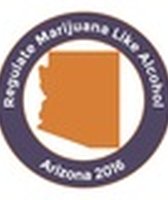Stand up for the facts!
Our only agenda is to publish the truth so you can be an informed participant in democracy.
We need your help.
I would like to contribute
Is Common Core no more?
President Barack Obama signed sweeping education reform into law in December that gives states more freedom to develop their own K-12 education standards.
Sen. John McCain, R-Ariz, highlighted this bipartisan legislation as a 2015 accomplishment in a Jan. 4 interview with the Daily Courier in Prescott. The Every Student Succeeds Act replaces the No Child Left Behind Act of 2001. Unlike No Child Left Behind, the new law singles out the Common Core State Standards.
Common Core refers to guidelines in English and math that aim to make children more prepared for college, borne out of suggestions from education officials and nonprofit groups across the country starting in 2009.
States were never required to use Common Core standards, but having standards in place earned states points for a share of federal dollars in the Obama administration’s Race to the Top grants. Although, some states received funding without adopting Common Core.
Common Core has become politically unpopular among conservatives in recent years, with leaders from Wisconsin to Florida to Arizona trying to move away from them.
In the interview, McCain argued that the new law nixes Common Core.
"It did away basically with Common Core," McCain is quoted as saying of the Every Student Succeeds Act in the Daily Courier article.
Is Common Core really no more? We decided to test McCain’s claim.
Local control
The Every Student Succeeds Act mentions Common Core several times. The part McCain is talking about reads: "Nothing in this Act shall be construed to prohibit a State from withdrawing from the Common Core State Standards or from otherwise revising their standards."
In other words, the law says states can choose whatever standards they seek fit. McCain spokeswoman Julie Tarallo pointed this out when we asked about McCain’s remarks, noting that "states are now free to decide what academic standards they will maintain."
But is that so different from what they could do before? U.S. Department of Education spokeswoman Jo Ann Webb said that Common Core was never a federal mandate. States did so voluntarily, as we’ve reported before.
Still, part of the criteria for Obama’s Race to the Top program was states having college readiness standards such as Common Core. States were free to adopt their own standards, but they had to prove those standards prepared students for college and work to get a share of billions in federal funding. Race to the Top ended last year.
The Every Student Succeeds Act makes it clear that the federal government cannot mandate standards such as Common Core, though Common Core would still be acceptable. The law also prohibits the government, through grants, contracts or other agreements, from taking any action against a state that "exercises its rights" to choose its own standards.
Arizona’s State Board of Education took a symbolic vote on Common Core in October 2015, repealing its standards in a 6-2 decision. State Superintendent of Public Instruction Diane Douglas, who oversees K-12 education across the state, said after the vote that Arizona is smart enough to "control the education of our own children."
More than three months later, department spokesman Charles Tack said the state is still in the process of developing its own standards. Arizona still has Common Core in place for this school year.
We asked other education experts about the senior senator’s statement.
Michael Petrilli is the president of the Thomas B. Fordham Institute, a Washington D.C.-based education policy think tank. He said the new law allows states to control their own education policies, but it doesn’t exactly do away with Common Core.
"He (McCain) was imprecise," Petrilli said. "It would have been to correct to say that the act eliminates any relationship between Common Core and the federal government, and that’s important."
Gerard Robinson, the former education commissioner of Florida and an education policy fellow at the American Enterprise Institute, a conservative think tank, said McCain is speaking to the fact that the Every Student Succeeds Act allows states to have more "decision-making over education."
Cornell University associate professor John Sipple, who specializes in education policy, said McCain’s statement is misleading, but he echoed similar comments about choice.
"States are on their own. They’re welcome to choose the Common Core, they’re welcome to choose another opportunity," Sipple said.
More than 40 states currently have Common Core State Standards. However, a number of states are revising their education standards. For example, Kansas, West Virginia and Alabama all have bills in their legislatures to repeal Common Core.
Our ruling
McCain said the Every Student Succeeds Act "did away basically with Common Core."
The Every Student Succeeds Act does not do away with Common Core. Common Core still exists in states throughout the country. A state can still decide whether or not they want to implement those standards, or create their own.
The new law prevents the federal government from mandating what a state decides to do with its specific education policies, such as requiring Common Core. The government did not, however, require states to adopt Common Core before this law.
For oversimplifying complex education policy, we rate McCain’s claim as Mostly False.
Our Sources
The Daily Courier, McCain: Americans are frustrated, Jan. 5, 2016
Every Student Succeeds Act, accessed Feb. 4, 2016
Common Core State Standards Initiative, "Read the Standards," accessed Feb. 4, 2016
Common Core State Standards Initiative, "Development Process," accessed Feb. 4, 2016
ABC15, "Arizona Board of Education votes to reject Common Core standards," Oct. 26, 2015
Education Week, "No Child Left Behind: An Overview," April 10, 2015
Interview with McCain press aide Julie Tarallo, Feb. 3, 2016
Interview with Thomas B. Fordham Institute President Michael Petrilli, Feb. 4, 2016
Interview with Cornell University associate professor John Sipple, Feb. 4, 2016
Interview with American Enterprise Institute resident fellow Gerard Robinson, Feb. 4, 2016
Interview with Arizona Department of Education spokesman Charles Tack, Feb. 4, 2016
Interview with U.S. Department of Education spokeswoman Jo Ann Webb, Feb. 26, 2016
PolitiFact, "How much is the federal government involved in the Common Core school standards?", Oct. 3, 2013
The New York Times, "Many states adopt national standards for their schools," July 21, 2010
The White House, "Race to the Top," accessed Feb. 25, 2016
The Wall Street Journal, "Mixed Reception for Common Core," accessed Feb. 26, 2016
The Wichita Eagle, "Kansas forges ahead with plan to stop Common Core standards," Feb. 20, 2016
The Register-Herald, "House votes to repeal Common Core Standards and related testing," Feb. 26, 2016
AL.com, "Vote on bill to repeal Common Core standards postponed but not before key change made," Feb. 10, 2016
Browse the Truth-O-Meter
More by Anthony Cave
Is Common Core no more?
Support independent fact-checking.
Become a member!
In a world of wild talk and fake news, help us stand up for the facts.

















































